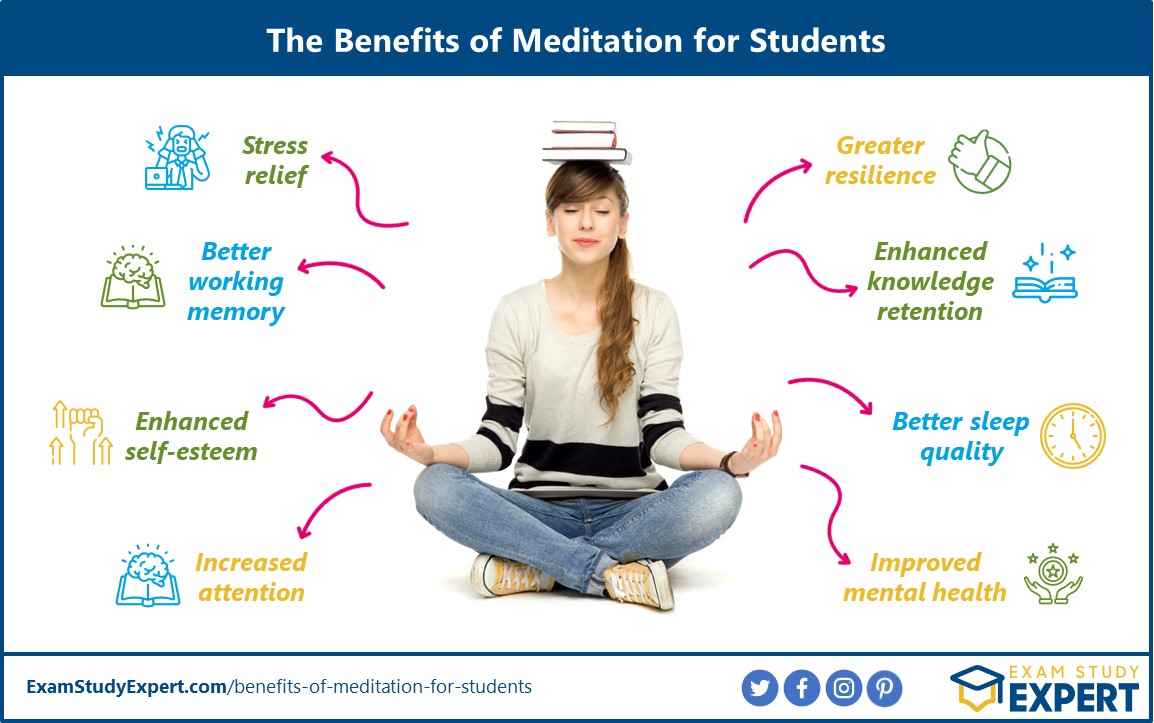Benefits of Mindfulness Meditation
Mindfulness meditation has gained significant popularity in recent years, and for good reason. It offers a wide range of benefits that can positively impact various aspects of our lives. In this article, we will explore the numerous advantages of practicing mindfulness meditation and how it can enhance our overall well-being.
Reduced Stress and Anxiety
One of the primary benefits of mindfulness meditation is its ability to reduce stress and anxiety. By focusing on the present moment and cultivating a non-judgmental awareness, individuals can decrease the impact of stressors and improve their ability to cope with challenging situations. Studies have shown that regular mindfulness meditation practice can lead to a significant reduction in stress levels and anxiety disorders.
Improved Mental Health
Mindfulness meditation has also been found to have a positive impact on mental health. It can help individuals manage and alleviate symptoms of depression, enhance self-esteem, and promote overall psychological well-being. By developing a greater sense of self-awareness and acceptance, individuals can cultivate a more positive mindset and improve their overall mental health.
Enhanced Focus and Concentration
Another noteworthy benefit of mindfulness meditation is its ability to improve focus and concentration. By training the mind to stay present and redirect attention to the current moment, individuals can enhance their ability to concentrate on tasks and improve their overall productivity. Regular practice of mindfulness meditation has been shown to improve cognitive performance and increase attention span.
Strengthened Emotional Resilience
Mindfulness meditation can also help individuals develop emotional resilience. By cultivating a non-reactive and non-judgmental attitude towards their thoughts and emotions, individuals can become more resilient in the face of challenging situations. This practice allows individuals to respond to emotions in a more balanced and constructive manner, reducing the likelihood of being overwhelmed by negative emotions.
Improved Sleep Quality
For those struggling with sleep issues, mindfulness meditation can offer significant benefits. By practicing mindfulness techniques before bed, individuals can calm their minds, reduce racing thoughts, and promote a sense of relaxation. This can lead to improved sleep quality and a more restful night’s sleep.
Enhanced Physical Health
While mindfulness meditation is primarily known for its mental and emotional benefits, it can also have a positive impact on physical health. Research has shown that regular practice of mindfulness meditation can lower blood pressure, reduce chronic pain, boost the immune system, and improve overall physical well-being. By reducing stress and promoting relaxation, mindfulness meditation can contribute to a healthier body.

Mindfulness meditation offers a multitude of benefits that can positively impact various aspects of our lives. From reducing stress and anxiety to improving mental health, focus, and concentration, the advantages of mindfulness meditation are undeniable. By incorporating regular mindfulness meditation practice into our lives, we can experience enhanced overall well-being and lead a more balanced and fulfilling life.
Frequently Asked Questions about the Benefits of Mindfulness Meditation
1. What is mindfulness meditation?
Mindfulness meditation is a practice that involves focusing your attention on the present moment and observing your thoughts and feelings without judgment.
2. What are the benefits of mindfulness meditation?
Mindfulness meditation has been shown to reduce stress, improve focus and concentration, enhance self-awareness, promote emotional well-being, and increase overall mental clarity.
3. How does mindfulness meditation reduce stress?
Mindfulness meditation helps to activate the body’s relaxation response, which counteracts the effects of stress on the body. It also teaches individuals to observe their thoughts and emotions without getting caught up in them, reducing the impact of stressors.
4. Can mindfulness meditation improve my focus and concentration?
Yes, regular practice of mindfulness meditation has been found to enhance focus and concentration. By training your mind to stay present and not get carried away by distractions, you can improve your ability to concentrate on tasks.
5. Does mindfulness meditation promote emotional well-being?
Absolutely. Mindfulness meditation helps individuals become more aware of their emotions and develop a non-reactive stance towards them. This allows for greater emotional regulation and an increased sense of well-being.
6. Can mindfulness meditation help with anxiety and depression?
Yes, mindfulness meditation is an effective tool for managing anxiety and depression. It helps individuals become more aware of their negative thought patterns and develop healthier ways of responding to them.
7. How long do I need to practice mindfulness meditation to experience its benefits?
The benefits of mindfulness meditation can be experienced even with just a few minutes of daily practice. However, to fully reap the benefits, it is recommended to practice for at least 10-20 minutes per day, consistently.
8. Can mindfulness meditation improve my overall well-being?
Yes, mindfulness meditation has been linked to improved overall well-being. It helps individuals cultivate a greater sense of gratitude, compassion, and acceptance, leading to a more positive outlook on life.
9. Is mindfulness meditation suitable for everyone?
While mindfulness meditation can be beneficial for most individuals, it may not be suitable for those with certain mental health conditions. It’s always recommended to consult with a healthcare professional before starting any new meditation practice.
10. How can I incorporate mindfulness meditation into my daily routine?
You can incorporate mindfulness meditation into your daily routine by setting aside a specific time and place for practice. You can start with short sessions and gradually increase the duration. Many people find it helpful to practice in the morning or before bed.




